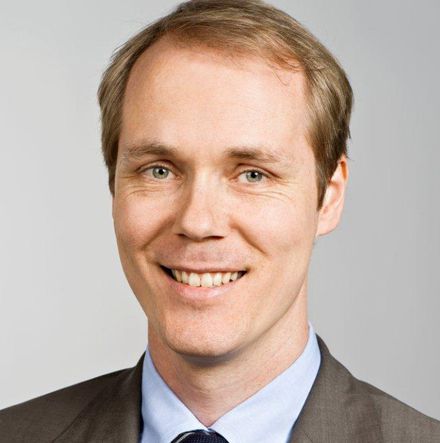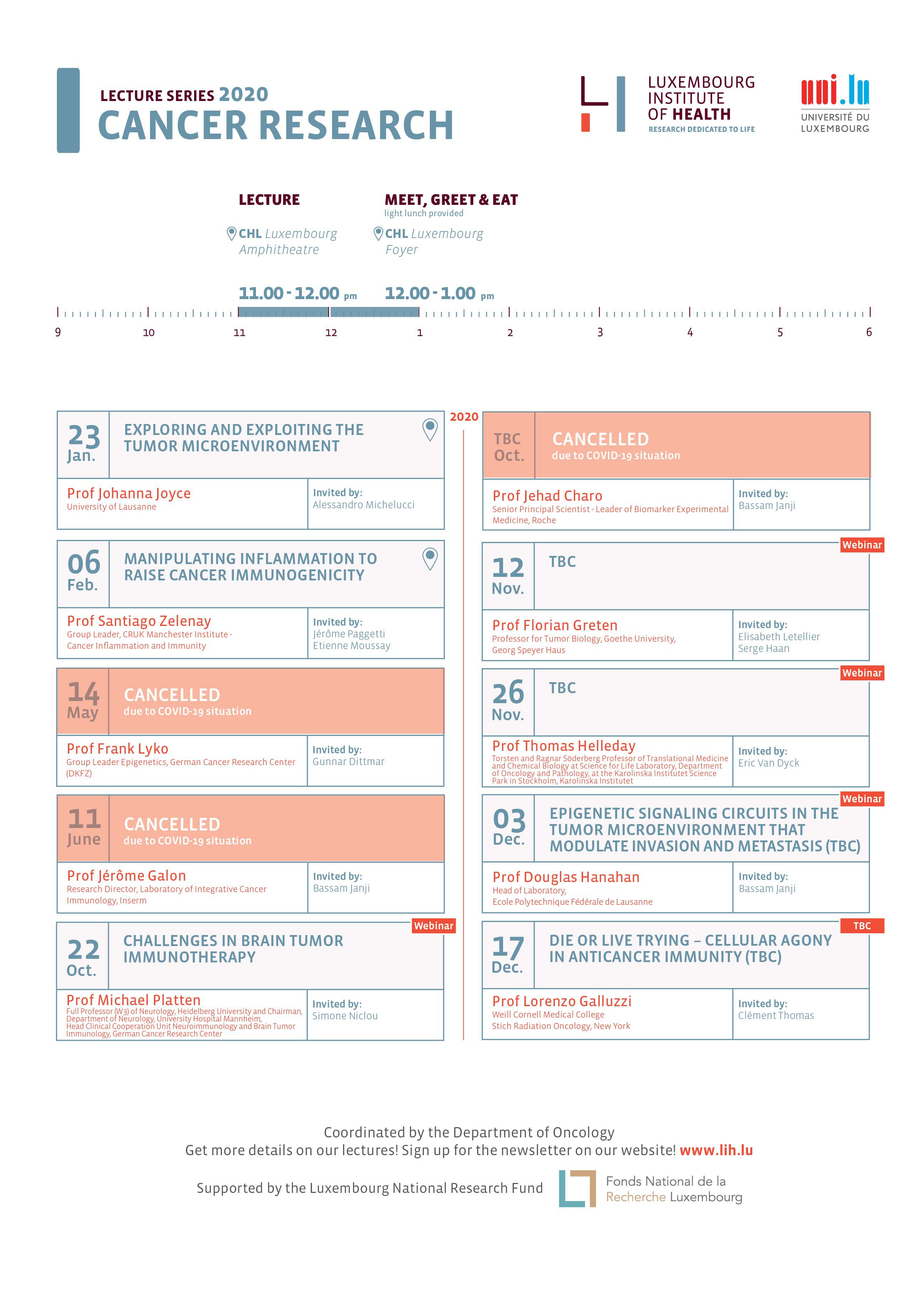WEBINAR: Lecture series Cancer Research: "Mechanisms driving cell plasticity in the colorectal tumor microenvironment"- Prof Florian Greten
12/11/2020 11:00 to 12/11/2020 12:15 (Europe/Luxembourg)
Speaker
Prof Florian Greten is Chair of Tumor Biology (W3), Medical Faculty,
Goethe University Frankfurt.

ABSTRACT
Tumors are beyond classical histomorphological characteristics increasingly defined and staged by their causal mechanism-based pathogenesis. However, it would be too simplistic to reduce tumor growth to an accumulation of genetic alterations that change in a cell-autonomous manner the behavior of the neoplastically transformed tumor cell compartment. Instead, a tumor rather represents a complex organ consisting on the one hand of tumor cells and on the other hand of host-derived stroma which is composed of resident as well as recruited cells. The tumor microenvironment is composed of different cells that can be grouped into three classes: (i) cancer-associated fibroblasts (CAF), (ii) vascular cells (VC), and (iii) infiltrating immune cells (IIC). Composition and polarization of cells in the tumor microenvironment depends on genetic as well as environmental factors and is directly influenced by tumor therapy. Within the tumor microenvironment an intricate reciprocal interplay between mutagenized cells and their surrounding stroma drives tumor evolution. Initiated tumor cells secrete chemokines and growth factors that cause remodeling of recruited inflammatory immune cells, stromal fibroblasts and vascular cells. These stroma cells communicate to each other and induce their respective polarization to ultimately form a niche that supports tumor cell growth. Thus, tumorigenesis relies greatly on the plasticity of both tumor and surrounding cells within the tumor microenvironment: cells of the adaptive immune system as well as the innate immune system create an immune tolerant network in the tumor stroma that affects basically every aspect of tumor cell biology by secretion of cytokines and growth factors that act in paracrine, autocrine, and juxtacrine manners to activate signaling pathways in both cancer and stromal cells. However, tumor growth does not simply depend on the presence of these cells. Instead, particularly infiltrating immune cells are characterized by a high degree of plasticity and therefore, it is their respective polarization profile rather than just their number that decides whether these immune cells confer pro- or anti-tumorigenic properties. Particularly colon carcinogenesis is an excellent example demonstrating that tumor evolution apart from the presence of a number of essential mutations depends on a close interaction of mutagenized cells with their tumor microenvironment that markedly influences all stages of tumorigenesis.
DOWNLOAD POSTER HERE
SCHEDULE
About the Lecture & Workshop series - Infection & Immunity
The LIH Lecture Series and Workshops in Infection and Immunity, supported by the FNR, are gathering internationally recognised speakers to address topics around Infection and Immunity. Lectures will be organised, followed by workshops especially dedicated to early-stage researchers. Please find here the programme for 2020.
Attendance to the lectures and workshops are free of charge. Should you be interested in registering for the workshops, please feel free to do so by sending us an email.

